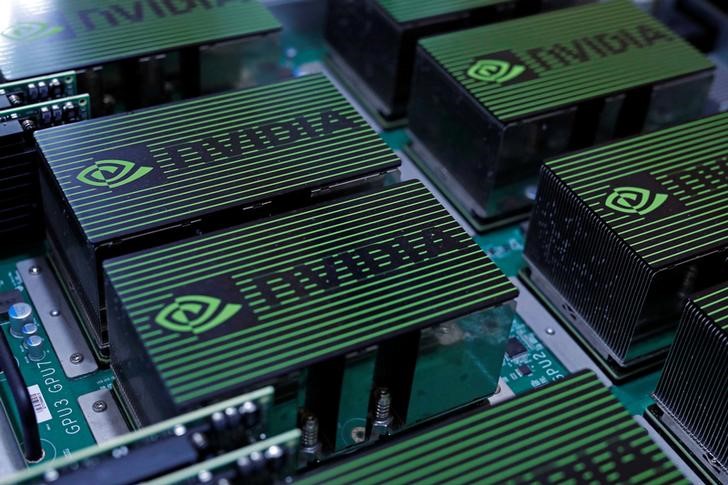Benzinga - by Neil Dennis, Benzinga Staff Writer.
Nvidia Corporation (NASDAQ:NVDA) shares are beginning to test investors’ faith in the company as high levels of volatile trading over the past couple of sessions has made its near-term future difficult to predict.
On Friday, shareholders experienced a rollercoaster of emotions. Initially, pre-market activity was brisk, propelling the stock up 2.7% at the opening bell, and it continued to climb, reaching a new high of 5.1% above the opening price, setting a record at $974.
However, the momentum abruptly shifted later in the day. A sudden downturn reversed the stock’s ascent, plunging it to its lowest point at $865.06 — marking a dramatic 11.2% swing from its daily high to the trough.
The shares finished the session at $875.28, a fall of 5.6% from the previous session’s closing mark.
Also Read: TSMC To Win $5B Grant For US Plant To Service Apple, Nvidia Chip Demand: Report
Key Indicators Left Adrift
The stock has moved so much higher, so quickly, that it has left key indicators such as the 50-day moving average back in the dust.The last time the share price broke down towards the 50-day moving average (DMA) was on Feb. 16. The shares closed the previous session at $726.58 and over the next three sessions, fell 7.1% to $674.72. They still ended around $100 short of the 50 DMA.
The 50 DMA currently stands at around $661, which would be a long way for the shares to fall back to.
But could Nvidia stock, and the broader market, be on the verge of a correction? History shows us that stock market corrections — that’s a peak to trough fall of at least 10% — happen, on average, about once every 16 months.
The last market correction occurred between July and October 2023, so a correction is not overdue. But the broader market — as measured by the S&P 500 — has gained 25% since then, and Nvidia stock, as Benzinga documented last week, has massively outpaced the broad market index, more than doubling over the same period.
Institutional Investors Begin To Get The Jitters
Cathie Wood, CEO of ARK Investment Management, on Friday expressed concerns on Bloomberg Businessweek of a potential correction in the semiconductor industry.“The one place we could see a correction — and it’s just a correction, we’re not calling it the end of this at all — is in the chip space,” she said.
And she’s not the only one beginning to get jitters. Jeff Kilberg, founder of KKM Financial, in an interview with CNBC, said, “Monday could be a rude awakening.” At the time of publication on Monday, shares of Nvidia were trading 0.7% lower at $869.00.
Other semiconductor shares felt the pain on Friday as Nvidia tumbled.
Broadcom Inc. (NASDAQ:AVGO), which reported quarterly earnings after Thursday’s market close, may have even been the catalyst. Although its earnings and revenues metrics beat Wall Street forecasts, its near-term outlook was not updated, which disappointed investors, hungry for news of blowout future earnings.
Broadcom shares dropped 7% on Friday. Among the other chip stocks falling were Intel Corp (NASDAQ:INTC) down 4.6% and ON Semiconductor Corp (NASDAQ:ON) down 4.8%.
The VanEck Semiconductor ETF (NYSE:SMH), an exchange traded fund with 27% of its holdings in Nvidia, dropped nearly 4% on Friday and was down 1.5% at the time of publication Monday.
Now Read: Nvidia Vs. Microsoft: ‘Insane’ Gains Aim Tech ‘Beast’ At No. 1 Market Cap Slot
Image created with a photo from Michael Vi/Shutterstock.
© 2024 Benzinga.com. Benzinga does not provide investment advice. All rights reserved.
